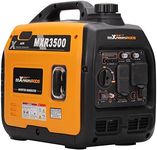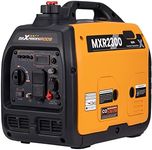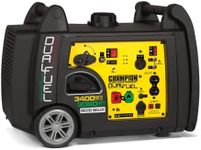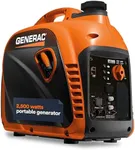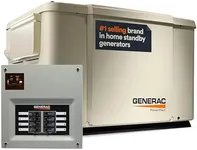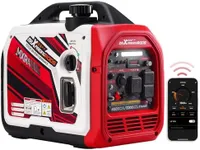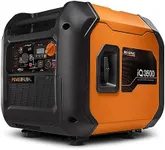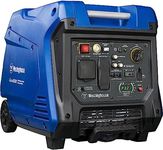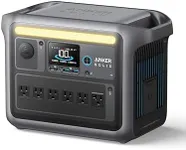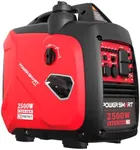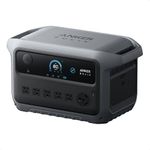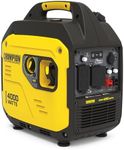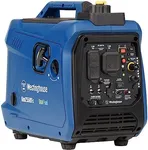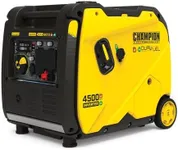Buying Guide for the Best Quiet Generators
Choosing a quiet generator is all about balancing your need for power with your desire for peace and quiet. Whether you need backup power for your home, a generator for camping, or something to run tools at a job site, focusing on noise levels, power output, portability, and fuel type will help you find the best fit. Think about where and how you’ll use the generator most often, as this will guide you toward the right combination of features.Noise Level (Decibels)Noise level, measured in decibels (dB), tells you how loud the generator will be when it’s running. This is especially important if you plan to use the generator in quiet environments like campsites, neighborhoods, or during outdoor events. Generators can range from very quiet (around 50-60 dB, similar to a normal conversation) to quite loud (over 70 dB, like a vacuum cleaner). If you need a generator for camping or residential use, look for models in the lower decibel range. For job sites or remote areas where noise isn’t a big concern, higher decibel levels may be acceptable.
Power Output (Wattage)Power output, measured in watts, tells you how much electricity the generator can provide. This is crucial because you need enough power to run your essential devices or appliances. Small generators (up to 2,000 watts) are good for charging electronics or running a few small appliances. Medium generators (2,000-4,000 watts) can handle more items, like refrigerators or power tools. Large generators (over 4,000 watts) are suitable for running multiple large appliances or as whole-house backup. To pick the right size, add up the wattage of everything you want to run at the same time and choose a generator that can handle that load.
PortabilityPortability refers to how easy it is to move the generator around. This is important if you plan to take the generator camping, tailgating, or move it between locations. Lightweight, compact generators with handles or wheels are easier to transport, while larger, heavier models may be better for stationary use. If you need to move your generator often, prioritize models designed for easy transport.
Fuel TypeGenerators can run on different types of fuel, such as gasoline, propane, or diesel. Gasoline is common and easy to find, but it can be noisy and requires careful storage. Propane burns cleaner and is quieter, but you’ll need to carry propane tanks. Diesel generators are usually more powerful and efficient, but they tend to be louder and heavier. Some generators are dual-fuel, giving you flexibility. Choose the fuel type that matches your convenience, availability, and intended use.
Run TimeRun time tells you how long the generator can operate on a full tank of fuel. This matters if you need power for extended periods, like overnight or during long outages. Shorter run times (4-6 hours) are fine for quick jobs or short events, while longer run times (8-12 hours or more) are better for backup power or camping. Think about how long you’ll need the generator to run without refueling and pick accordingly.
Inverter TechnologyInverter generators use advanced electronics to produce cleaner, more stable power, which is safer for sensitive electronics like laptops and phones. They are also generally quieter and more fuel-efficient than traditional generators. If you plan to power electronics or want the quietest operation, look for a generator with inverter technology.
